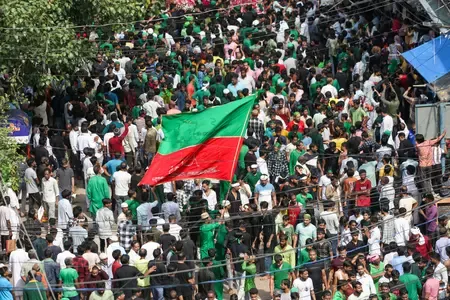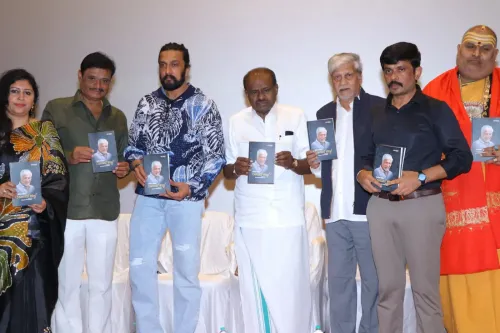Is Intel Warning About PFI's New Strategy of Infiltration Through Political and Social Organizations?

Synopsis
Key Takeaways
- PFI has been banned for over three years.
- Reportedly adopting a new strategy through infiltration.
- Grassroots strength poses challenges for security agencies.
- Connections to foreign funding sources.
- SDPI serves as a legal cover for PFI members.
New Delhi, Oct 22 (NationPress) Despite being banned for just over three years, the Popular Front of India (PFI) has reportedly developed a new strategy according to intelligence agencies.
While numerous members were apprehended prior to the ban, many have gone underground. They have now been directed to infiltrate social organizations and political parties. These previously elusive individuals are now integrating into various political groups, as the PFI aims to maintain its ideological presence.
Since the ban, there has been a noticeable absence of overt activities by the organization. However, a segment has been assigned the responsibility of preserving its ideology. This indicates a potential revival plan is in motion, resulting in increased scrutiny of individuals sympathetic to the group.
Agencies express concern over the PFI's grassroots strength, which could facilitate any revival efforts. It's anticipated that the PFI won't engage in extraordinary actions immediately; they may wait for a couple of years until the scrutiny diminishes.
The PFI appears to be emulating the trajectory of the Students Islamic Movement of India (SIMI). SIMI was banned in 2001, and by the time it rebranded as the Indian Mujahideen (IM), nearly seven years had passed.
Similar to the PFI's current situation, SIMI instructed its sympathizers to remain hidden and avoid activities. They encouraged some members to join political entities and social organizations to keep their ideology alive. By the time it resurfaced as the IM, it had transformed into a significantly powerful organization.
Another concern for security officials is that, like SIMI, the PFI's influence is not confined to a single state. Initially, the PFI was primarily based in Kerala, supported by continuous visits from Wahhabi preachers from Gulf countries, which facilitated the spread of their ideology and funding.
An official stated that the potential for revival exists anywhere, as the PFI has expanded into numerous northern states and maintains a robust base in Bihar. This complicates monitoring efforts, as agencies must now observe multiple states, unlike the past when focus was solely on Kerala.
Additionally, the PFI operates foreign modules primarily in Oman, Qatar, Saudi Arabia, Kuwait, and the United Arab Emirates (UAE). These modules manage 29 bank accounts, which could be utilized for reviving the organization.
The PFI also exploited a loophole by establishing its political wing, the Social Democratic Party of India (SDPI). This is the only affiliate of the PFI that remains unbanned, being a registered political entity with the Election Commission of India (ECI).
Recently, the SDPI was involved in violent confrontations with the CPI(M) in Kerala, while largely focusing on political endeavors. Nonetheless, the organization is under surveillance, as agencies suspect that many underground PFI members may have joined the SDPI to obtain legal protection. Their activities are being closely monitored, as an official indicated.
An official explained that if PFI members are turning to politics for legal cover, it presents a significant challenge. Identifying such individuals for accountability will be difficult. However, continuous surveillance will be maintained on suspicious persons and their activities, including monitoring social media posts, public speeches, and other engagements.
The current challenge does not stem from any overt activities, as there are none. When individuals engage in promoting their ideology while attempting to preserve it, the task for security agencies becomes exceedingly complex, another official elaborated.









